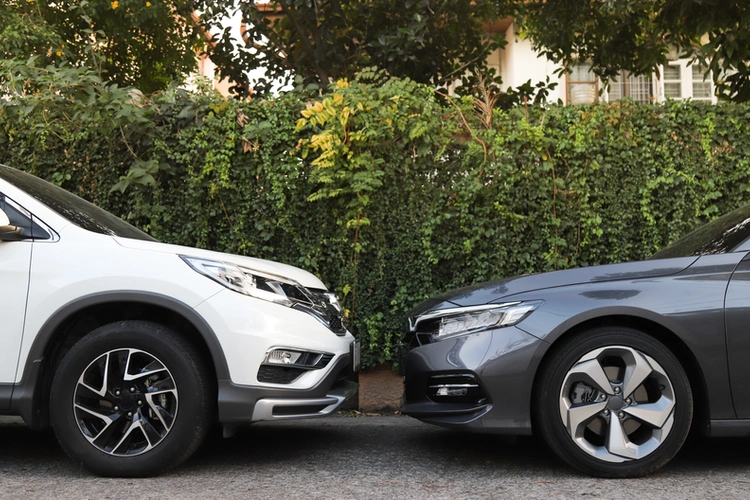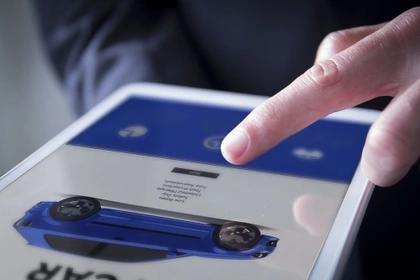Can I get insured to drive someone else’s car?
Yes, you can get insured to drive someone else’s car - if they agree and you have a valid driving licence and insurance.
Be aware that having fully comprehensive car insurance on your own car doesn’t mean you’re covered to drive someone else’s. You may need to add Driving Other Car (DOC) insurance on, which comes with extra costs. Or you could ask to become a named driver on someone else’s policy.
There are also short-term solutions to consider. If you only need to borrow a car for a few days or weeks, you could take out temporary cover. Then you’ll only pay for the time you use it.
It’s best to contact your insurer to find out the terms and conditions of your contract.
If you are covered to drive someone else’s car, ask about the level of cover and see if there are any conditions. For example, you might only be able to drive another car in case of an emergency. Or you may only be insured on a third-party basis.
Third-party covers any damage to another person’s car or property - if you’re at fault. It doesn’t include costs involved with damage to your own car, or fire and theft.
Can I drive my partner’s car?
If you’re insured to drive your own car, it doesn’t mean you can drive your partner’s car. You’d need to check the terms and conditions of your contract. If your partner’s car isn’t included, you’ll need to add it on or get yourself added to their policy, before you can drive it.
Driving without insurance is illegal and you could face an IN10 and six to eight penalty points on your licence. Also, your partner could get an IN12. This may put companies off insuring you or your partner in the future. Or they may increase premiums to try to offset the risk.
On top of this, if you were unfortunate enough to have an accident, you’d need to pay for any costs out of your own pocket.
Can I get insurance for my family?
Yes, you have a few options to get insurance for your family. For example, you could:
- Add family to your existing policy as named drivers - if they’re going to be driving the car less than you (more on this below).
- Get a ‘multi-car’ policy - it may work out cheaper than paying for separate policies. (But this may not always be the case, e.g. if your family members have a bad driving record it could increase your premiums).
- Get an ‘any driver’ policy - this allows an unlimited number of people to drive your car. This is why it’s on the more expensive end of the scale.
Tip: It’s worth shopping around, as quotes will vary depending on factors such as the insurer, your car and driving record.
Does my occupation affect which cars I can drive?
Yes, your occupation can affect which cars you’re insured to drive. The provider will ask for your job title when you apply, so they can decide how risky it’d be to insure you. Each company follows its own guidelines, so it’s best to speak to them to see how this will affect you.
Some companies may exclude certain jobs or increase premiums for people with job titles that appear as high risk. For example, a job that involves a lot of driving could be seen as riskier than an office job, where there’s less chance of having an accident.
Tip: Remember to update your insurer if your job role changes, or you could invalidate your cover. Don’t put down a false occupation to try to get a better deal. This is fraudulent, can invalidate your insurance and may lead to a criminal conviction.
Who is the named driver?
The named driver is also known as an additional driver. You may be able to add up to three named drivers to your policy, depending on your insurer. You can do this either at the application stage or after the policy starts. (There’s normally a fee to add them on later, as it involves changing the terms and conditions of the original contract).
Many younger drivers start off as named drivers on their parent’s policies because insurance companies charge high premiums for young main drivers. This is because they are seen as high risk. Being on their parent’s policy is often the cheapest option for them - as long as their parents are experienced drivers with good driving records.
Bear in mind, although named drivers can save money, main drivers can end up paying more, due to the risk involved with new drivers.
Also, be aware that named drivers must use the car less often than the main driver, otherwise, it can invalidate the insurance policy. Intentionally misleading the insurer by putting down a younger driver as the named driver (when they’re actually the main driver) is called ‘fronting’ and it is illegal.
The same level of cover applies to both the main driver and the named driver - whichever level of cover you go for.
No-claims bonuses, however, work differently. Named drivers are not usually awarded a no-claims bonus (but you would need to check with your contract). If a named driver makes a claim, it can damage the main driver’s no-claims bonus. So you’d need to weigh up the pros and cons before you change your policy.
Compare cheap car insurance quotes
- Search over 100 providers
- Quick and easy comparison tool
Disclaimer: We make every effort to ensure content is correct when published. Information on this website doesn't constitute financial advice, and we aren't responsible for the content of any external sites.






